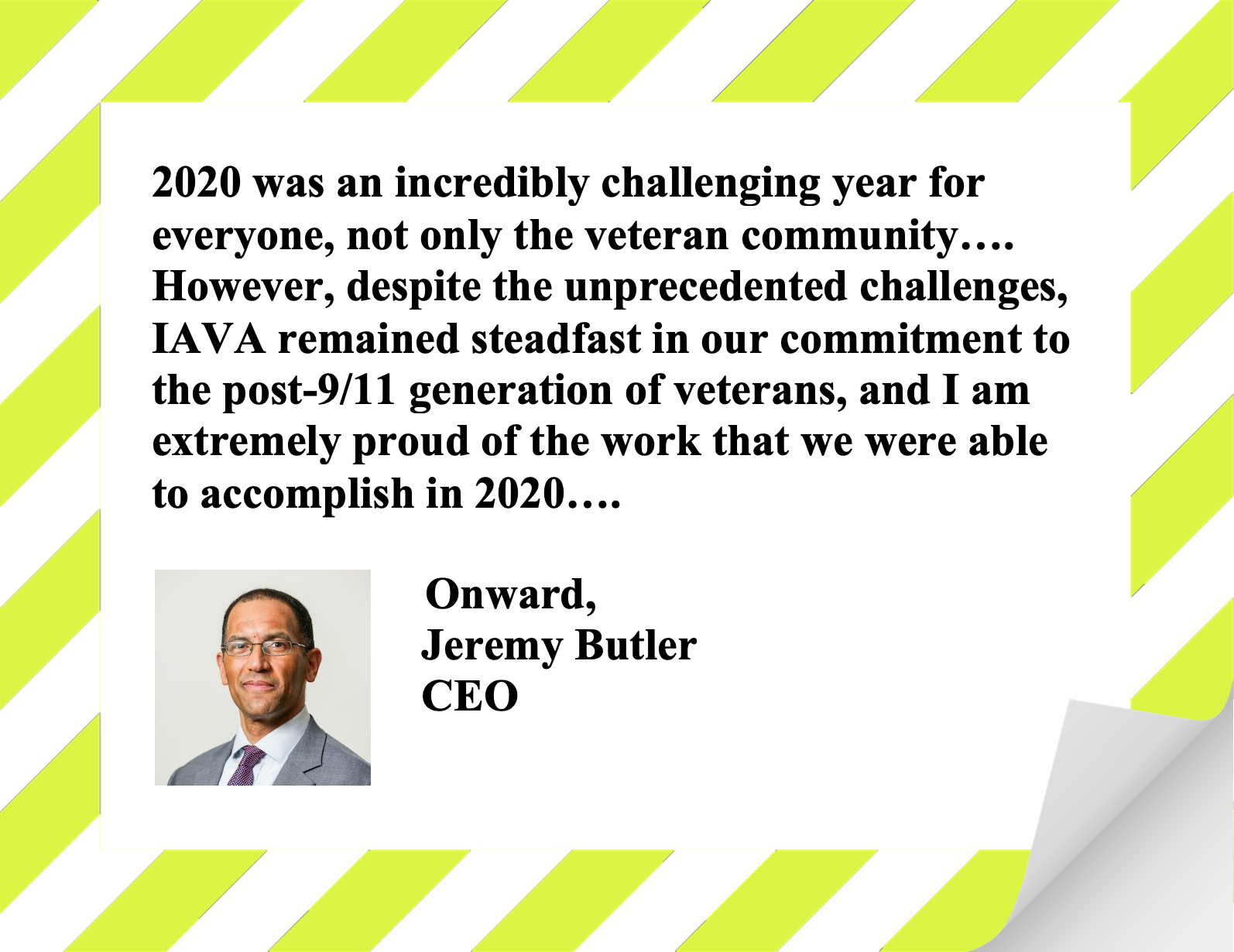IAVA's Policy Agenda for the 117th Congress
Galvanize Support for Women Veterans
Galvanize Support for #SheWhoBorneTheBattle
Over the past few years, there’s been a groundswell of support for women veterans’ issues. From health care access to reproductive health services to a seismic culture change within the veteran community, women veterans have rightly been focused on and elevated on Capitol Hill, inside the VA, and nationally. In 2017, IAVA launched our groundbreaking campaign, #SheWhoBorneTheBattle, focused on recognizing the service of women veterans and closing gaps in care provided to them by the VA. Ahead of the times, we made the bold choice to lead on an issue that was important to not just the 13% of our members that are women, but to our entire membership, the future of healthcare, and America’s national security. We fought hard for top-down culture change in the VA for the more than 345,000 women who have fought in our current wars–and for all Americans.
In 2020, the cornerstone of IAVA’s #SheWhoBorneTheBattle campaign, the IAVA-led Deborah Sampson Act, was passed into law after a nearly four-year campaign. This groundbreaking legislation includes several important provisions that will address sexual harassment and assault in VA facilities, establish an Office of Women’s Health directly under the Undersecretary of VA for Health, and improve access to care and benefits for survivors of Military Sexual Trauma (MST).
Women are currently the fastest-growing population in both the military and veteran communities, and their numbers have been growing steadily since the 1970s. And while more women are joining the military and are finally being given unprecedented roles in combat and greater responsibilities in leadership, veteran services and benefits often fall behind.
While the past few years has been encouraging in the display of growing interest in ensuring health care accessibility for women veterans at VA, increasing support for women veterans, and expanding services, there is still much work to be done.
IAVA's Approach
Improve Care and Benefits for Women Veterans
Improve Care and Benefits for Women Veterans
For those women veterans that choose to seek care at VA, finding quality providers that understand the needs of women veterans can be difficult. And while VA has made progress improving women-specific care for women veterans, including expanding the services and care available within VA, there is still much progress to be made. Women veterans are more likely than their male counterparts to seek care in the community, meaning they are often seen by private care providers that may or may not understand military service and its health impacts.
Furthermore, for those who do seek care at VA, the quality and standard of care is not uniform. According to a December 2016 GAO report on the standards of care of VA medical centers, VA “does not have accurate and complete data on the extent to which its medical centers comply with an environment of care standards for women veterans.” The same report noted a deficiency of 675 women’s health primary care providers as of 2016. This means that women entering these facilities may not have basic privacy standards like locked doors, privacy curtains, and other adjustments to make them feel welcome. For years, VA has faced scrutiny for sexual harassment and assault within their medical centers, and the lack of action by top leadership. While not solely a women veterans issue, it is known that these issues disproportionately affect women and the lack of action by VA furthers the problem of women veterans feeling unwelcome at their facilities. While IAVA fought hard to correct these issues with the Deborah Sampson Act, we must ensure that VA fully implements these important reforms.
Changing this will require establishing clear standards, training VA staff to meet these standards, and investing in appropriate facilities, women practitioners and doctors who specialize in women’s health. Facilities and providers must regularly be evaluated to ensure they meet the standards our veterans deserve. And the VA, with its partners, must do a better job of reaching out to women and telling them about the resources VA has to offer.
IAVA's Recommendations
- Ensure all VAMCs are following and enforcing environmental standards of care
- Ensure all VA community providers have a women veterans competency training and understand women veterans’ unique needs, experiences, and services desired
- Ensure Congress is holding VA and care providers accountable through public hearings, testimonies, and data sharing
- Ensure strong Congressional oversight of implementation of the Deborah Sampson Act
IAVA's Policy Priorities
Select a topic from the list below to learn about IAVA’s policy recommendations for the 117th Congress.

